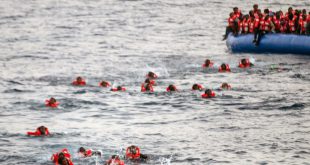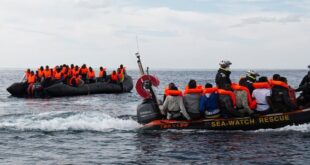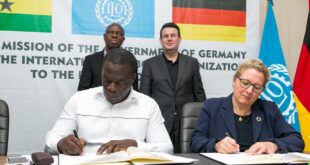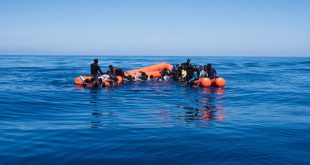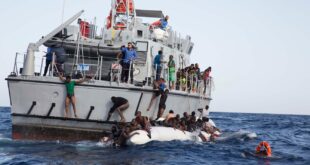Germany is to send back asylum seekers to Greece, ending a five-year suspension of the EU’s asylum rules on transfers because of poor reception conditions.
Greek migration minister Yiannis Mouzalas, speaking to the German public television channel ARD, in a program due to air on Tuesday (8 August), has confirmed that Greek authorities received 392 requests.
Mouzalas said Athens approved the return of a “small number” of asylum seekers from Germany and other EU countries.
The move would end a five-year suspension of the so-called Dublin regulations, the EU’s asylum rules under which the EU country where the individual first enters the bloc needs to process the asylum request. If the asylum seeker has travelled on to other EU countries, they must be returned to their first point of entry.
At the peak of the migration influx in 2015, hundreds of thousands of people made their way to Germany and other EU nations through Greece, making use of the passport-free Schengen area.
The transfers to Greece will only affect asylum seekers who arrived in Germany and other EU countries from mid-March this year, in line with a recommendation issued by the European Commission last December.
The exact date of the transfers depends on the Greek authorities.
Returns to Greece were halted by EU states in 2011, following two judgments by the European Court of Human Rights (ECHR) and another by the European Court of Justice (ECJ), partly due to the poor treatment of people by Greek authorities.
The EU commission said last year that the “Dublin returns” to Greece could start in March on condition that EU member states relocate their promised share of asylum seekers from Greece under the EU’s quota scheme.
But earlier this year, the EU executive backed down despite member states failing to relocate a significant number of asylum seekers from Greece and Italy.
According to the latest figures, 25,438 people have been relocated out of the 160,000 that member states pledged to take in from Greece and Italy – the two main frontline countries.
“There was pressure from several EU countries to resume returns. I understand that governments want to show some results to their voters,” Mouzalas said.
In September, German voters will head to the polls for general elections. German chancellor Angela Merkel, whose welcoming policy towards migrants has been criticized, will run for a fourth term in office.
Harsh conditions in Greek reception centres have repeatedly been criticized. Riots have also broken out occasionally because of the bureaucratic delays and poor conditions.
Eszter Zalan / EUobserver
 THE AFRICAN COURIER. Reporting Africa and its Diaspora! The African Courier is an international magazine published in Germany to report on Africa and the Diaspora African experience. The first issue of the bimonthly magazine appeared on the newsstands on 15 February 1998. The African Courier is a communication forum for European-African political, economic and cultural exchanges, and a voice for Africa in Europe.
THE AFRICAN COURIER. Reporting Africa and its Diaspora! The African Courier is an international magazine published in Germany to report on Africa and the Diaspora African experience. The first issue of the bimonthly magazine appeared on the newsstands on 15 February 1998. The African Courier is a communication forum for European-African political, economic and cultural exchanges, and a voice for Africa in Europe.




